Could independents hold the key to empty shops?
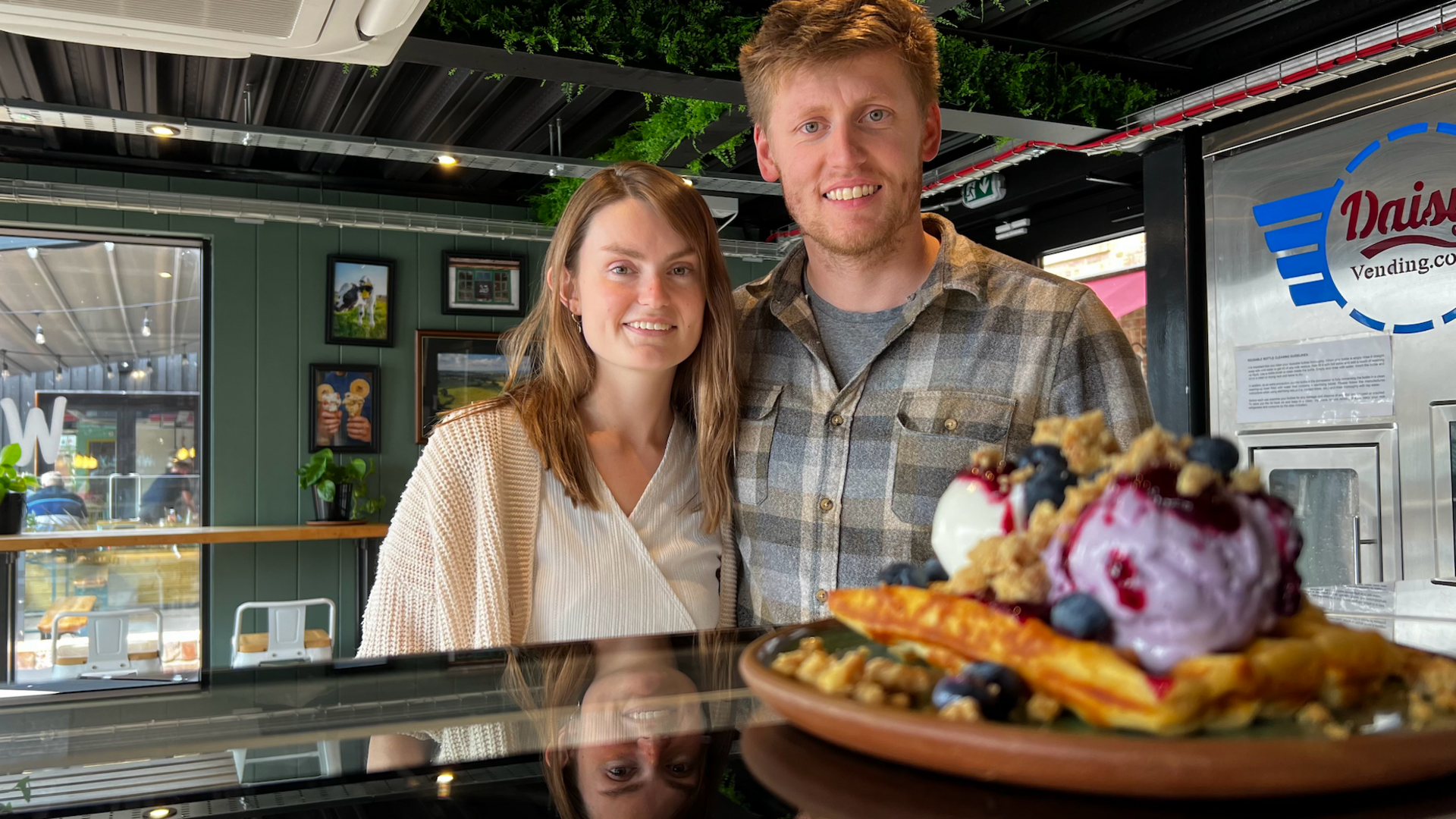
Will and Emily Lee sell their local ice-cream on Gloucester dockside, in a food court that is entirely made up of independent traders
- Published
There’s one in every town centre. The High Street store that has been boarded up for years, wasting valuable space.
One in seven shops on UK High Streets is empty, according to analysis by the Local Data Company, external. Many still carry the sign of the chain store that went bust or closed that branch.
But now traders in one city are calling for big empty shops to be divided up and let to small local independents.
Luke Lutman, chair of the Gloucester Chamber of Trade, said there is a “real hunger for small independents, especially all in one place”.
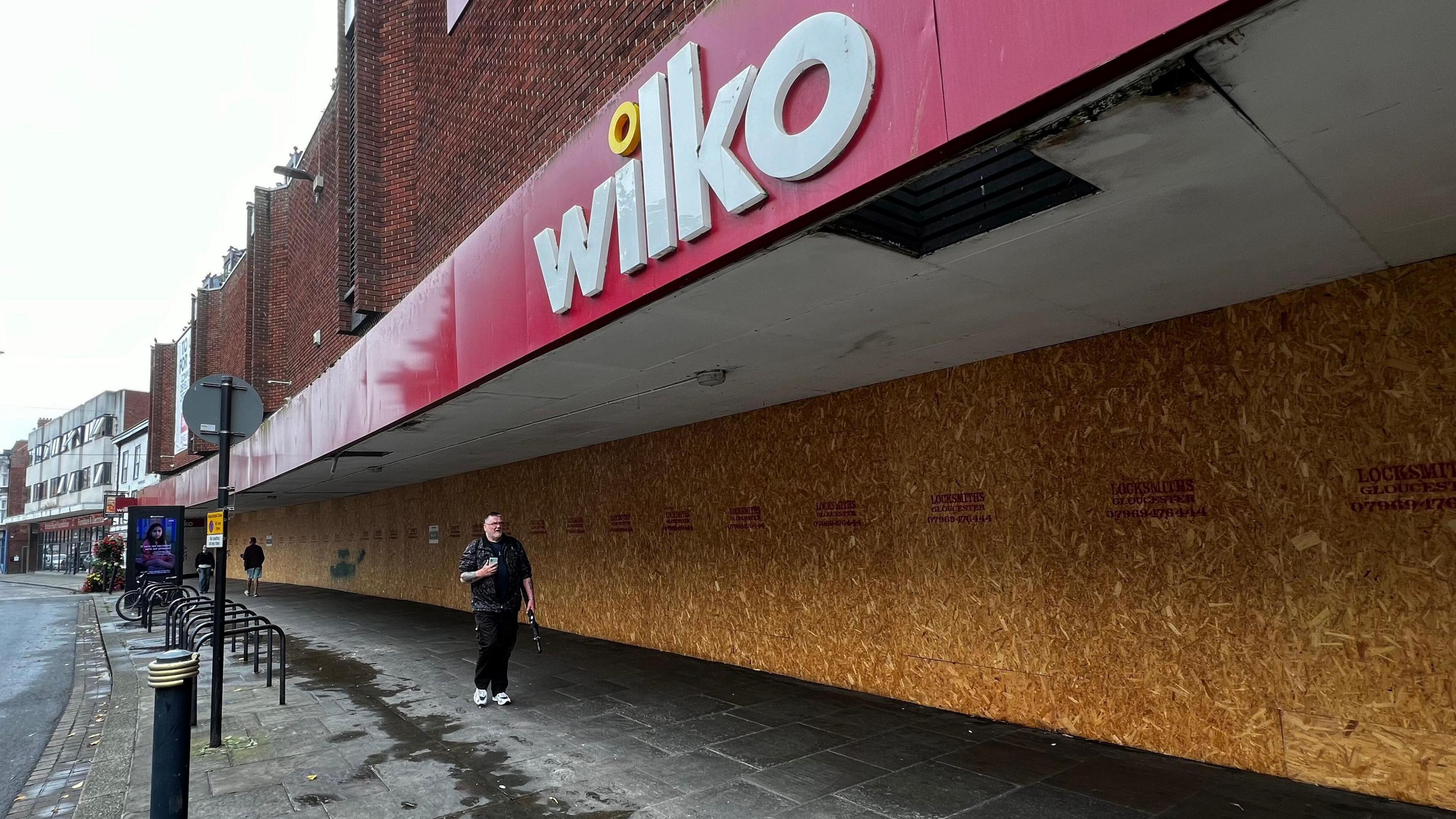
Wilko went bankrupt and closed this store in August 2023, but a year on it is still unused
In the centre of Gloucester, the Wilko sign still hangs over the huge building that once housed the national chain.
It went bust a year ago, but still the store is boarded up.
Round the corner, another vacant shopfront has been painted by a local artist, as the city council tries to reduce some of the visual damage done by empty shops.
Luke Lutman thinks it’s time something was done.
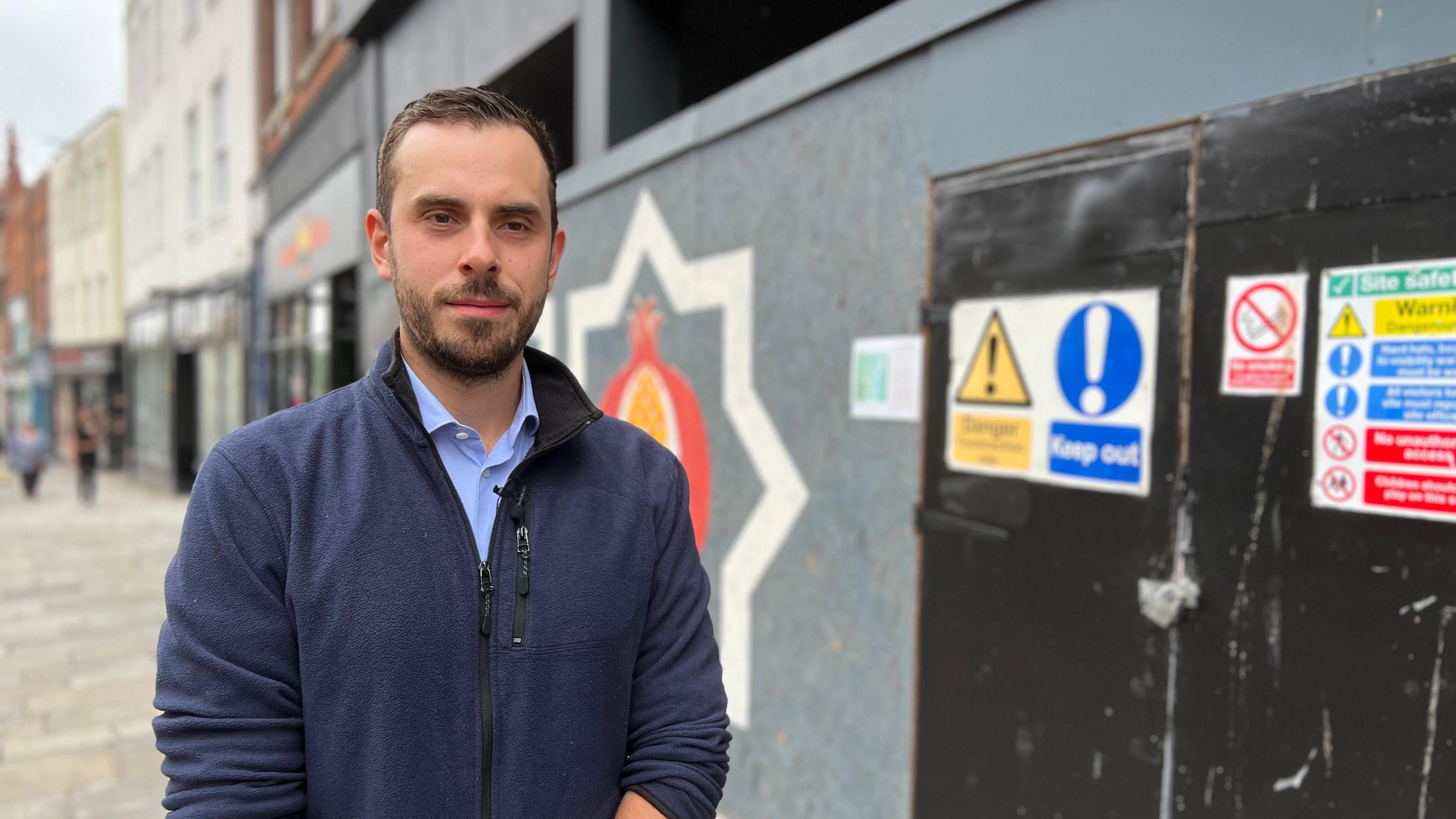
Empty shops are "such a waste", says Luke Lutman, Chair of the Gloucester Chamber of Trade
“This is a giant store, and clearly no-one wants it as it is,” he tells me.
Mr Lutman chairs the Gloucester Chamber of Trade, and wants new thinking on an old problem.
“It has been empty for years, and it could well be divided up to make space for independents. Coffee shops, creative businesses, specialist traders; it could become a vibrant space.”
The city has an experiment that, Mr Lutman believes, proves his point.
On Gloucester's historic dockside, old warehouses have been redeveloped.
There are coffee shops, a pizzeria, a craft brewery, just as you would expect.
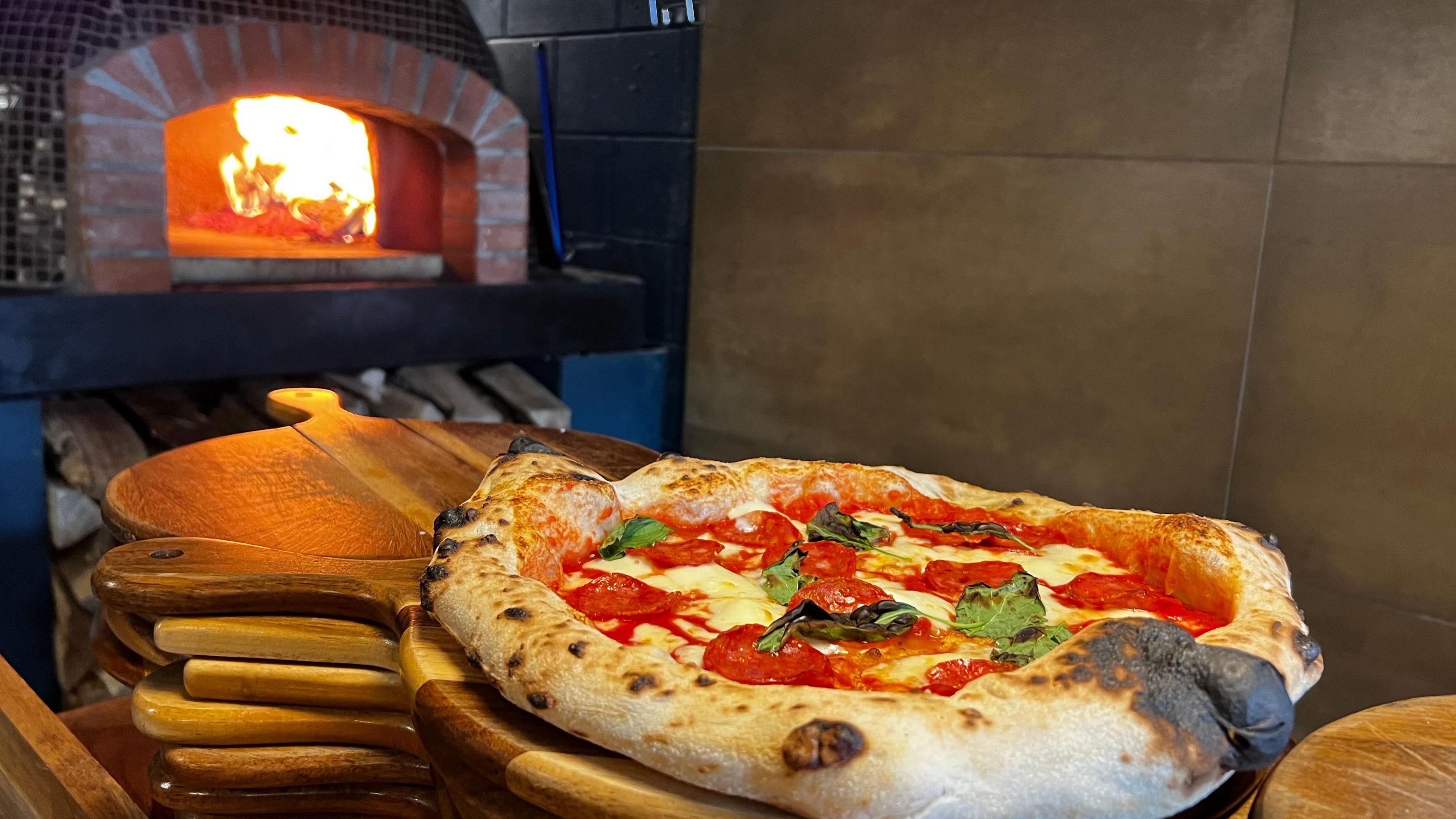
No chains here: wood-fired pizza is one of the offerings in ten independent eateries on the Gloucester dockside
Unusually though, there is not a national name in sight.
A tempting gelateria offers ice-cream made on a dairy farm just miles outside the city.
“We previously just sold through a hatch on the farm,” smiles Emily Lee.
“Then we got offered this, and it’s been a rollercoaster – but so exciting.”
Emily and her husband Will took the plunge in November 2023, not the easiest month to sell ice-cream.
“We had a pretty ropey winter,” laughs Will, “but when the summer came, we thought ‘Phew, this is going to be ok.’”
On sunny weekends, people queued out the door and down the stairs for their signature Gloucestershire ice-cream.
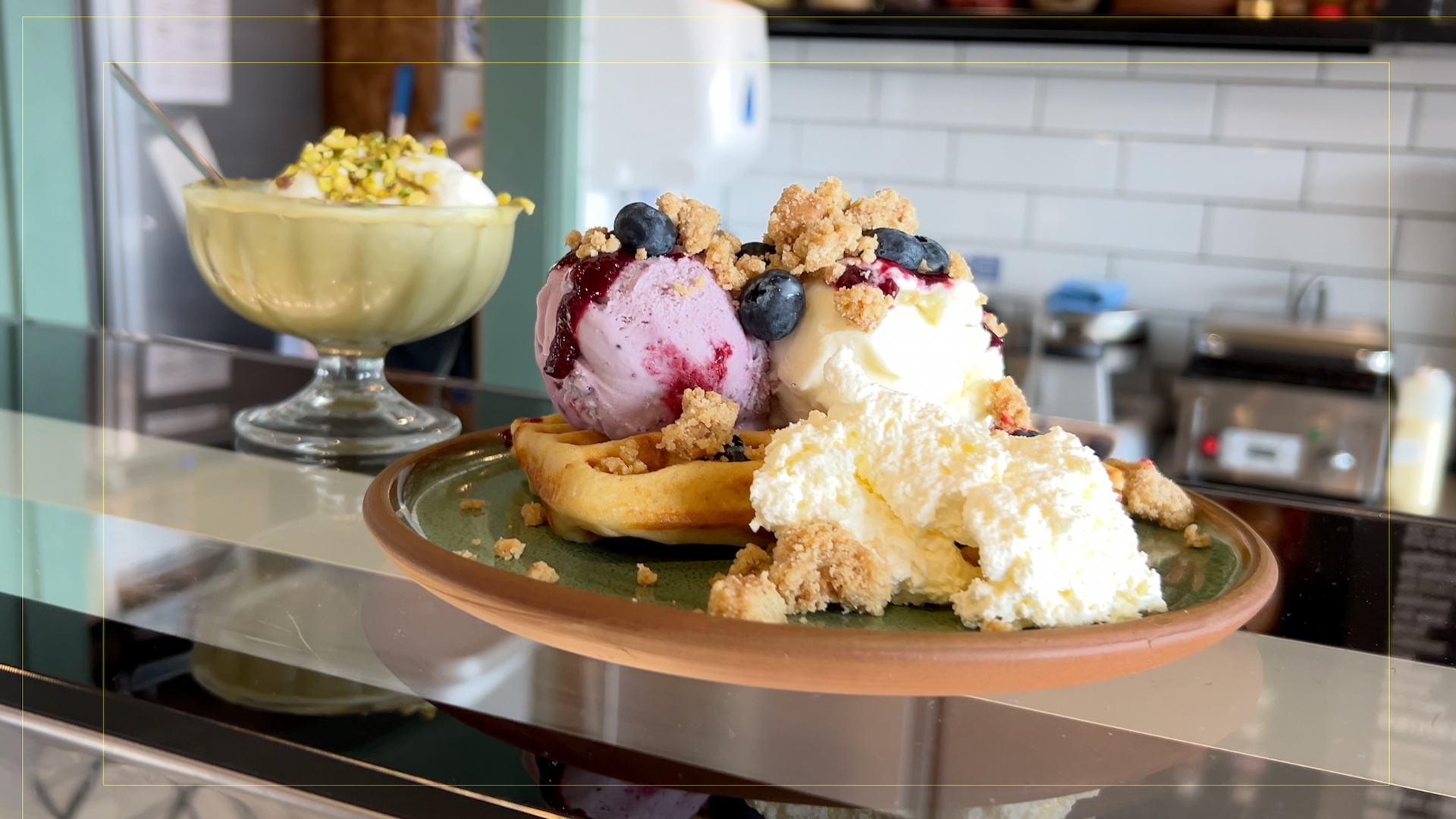
Many of the traders use local ingredients, like the Gloucestershire milk in this ice cream
Taking a permanent unit in a brand new development on a prime site like a harbourside is pretty unusual for a new business.
But every one of the ten units in the ‘Food Dock’ is an independent. Most have never had a bricks and mortar site space before.
“It’s so exciting, it’s brilliant,” enthuses Hetty Kitt in her new brunch bakery.
Hetty began baking brownies in her flat in 2011, and has gradually grown. The café is her first big full service operation.
“Giving small businesses a chance to show what they can do in such a prime location is fantastic,” she says.
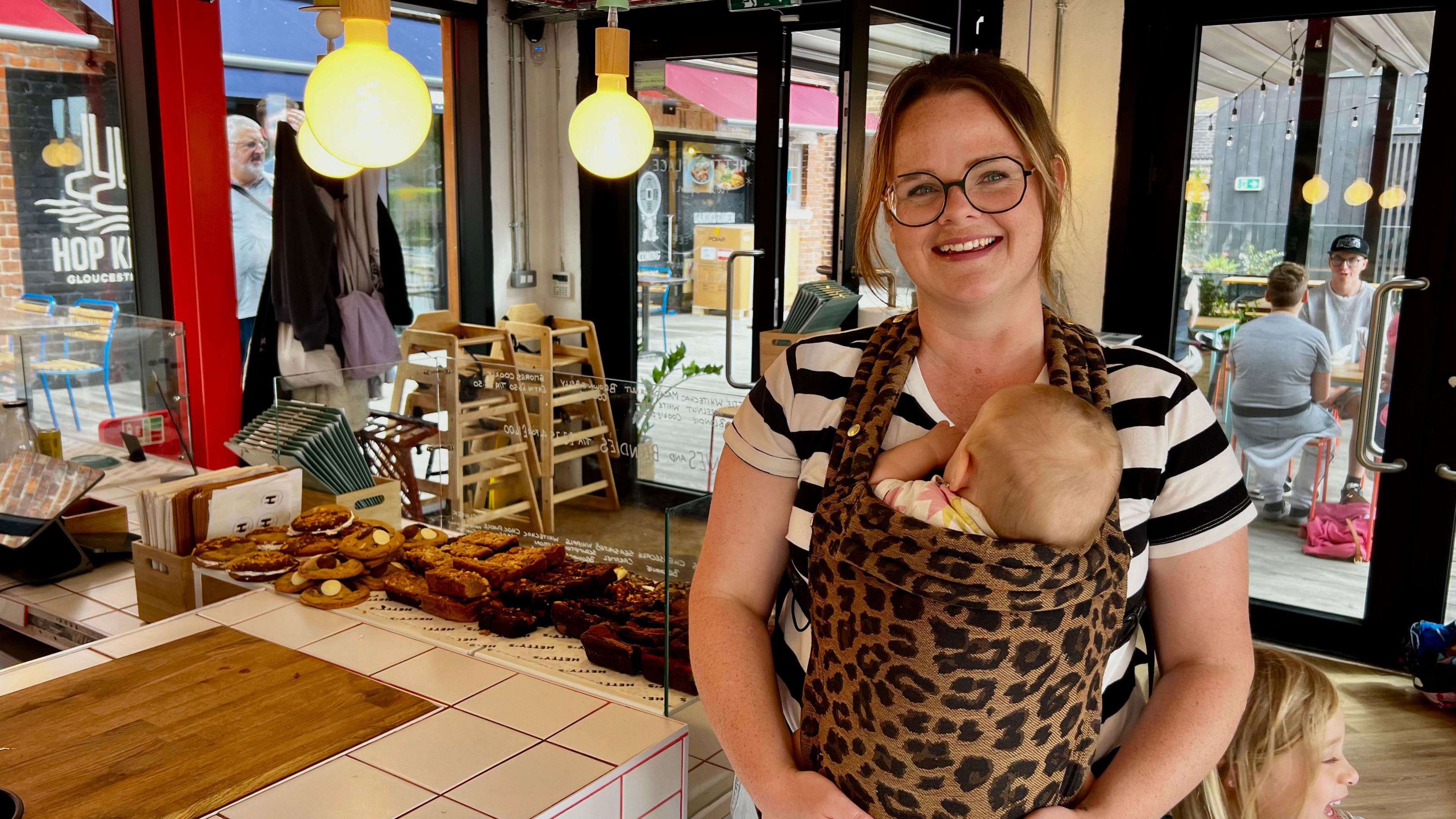
Hetty Kitt launched her brownie bakery in her own kitchen, but has now moved into a permanent cafe
The developers are as commercial here as anywhere, so why have they refused the usual national chains?
“It just doesn’t work any more,” explains Ken Elliott, who planned and financed the development. His company has made large shopping centres, but he says the public are tired of the same old casual dining chains.
Fine, I say, but there is a reason new developments are full of national chains. Investors are wary of taking a risk on untried new businesses, especially a whole group of them.
Mr Elliott explains they have financed the Food Dock completely differently.
"We're not asking for guarantees, we're not asking for deposits, we help with fit out costs."
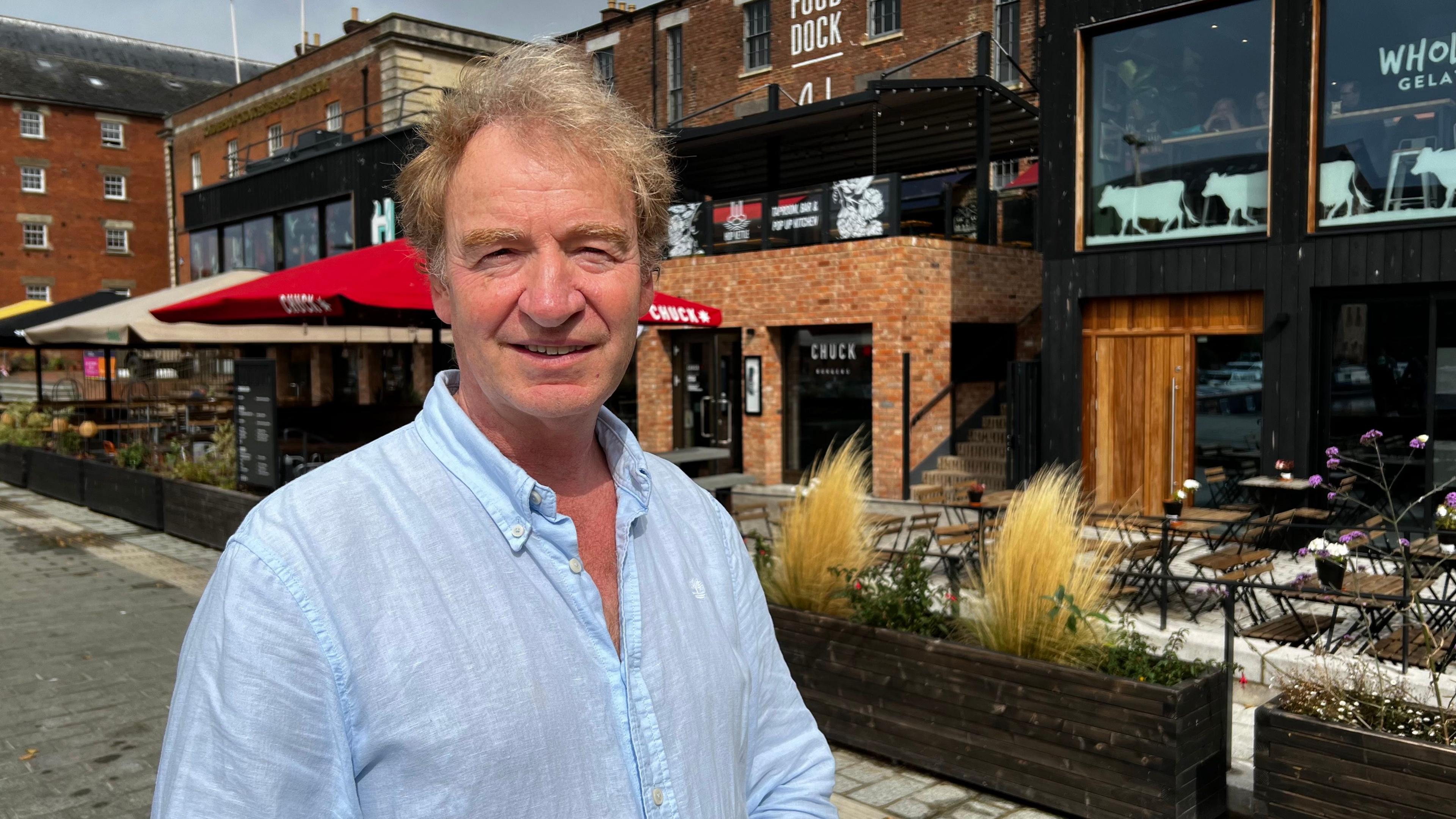
Property developer Ken Elliott says the national dining chains "just don't work any more"
But most of all, they charge rent as a percentage of sales, rather than as a flat rate.
“So if they don’t make any money, we don’t make money,” he smiles.
It means the development company has to stay for longer, earning back the original building costs through steady rent, rather than selling quickly to another property management firm.
“We love working with these enthusiastic entrepreneurs,” Mr Elliott says. “And they are really less risk than the nationals, because they aren’t going anywhere. They live here.”
In the gelateria, Emily and Will do have to go. They leave the sundaes in their assistant’s capable hands and return to their farm.
There are cows to be milked.
Can pop-up shops help to regenerate our High Streets?
- Published10 January 2024
'Eyesore' empty shop could become pub
- Published11 June 2024
Town outperforming national average on empty shops
- Published27 July 2023
Get in touch
Tell us which stories we should cover in Gloucestershire
Follow BBC Gloucestershire on Facebook, external, X, external and Instagram, external. Send your story ideas to us on email or via WhatsApp on 0800 313 4630.